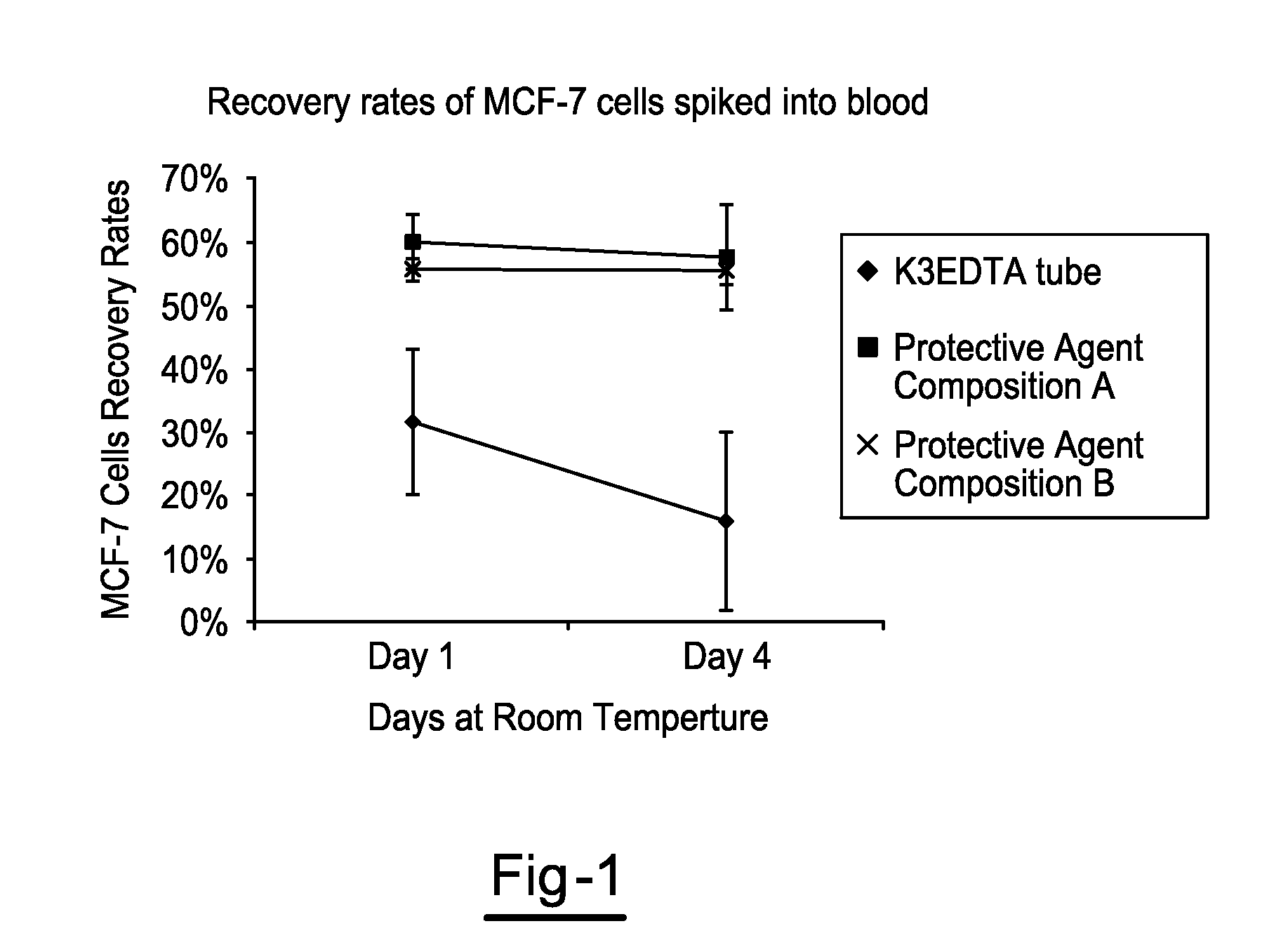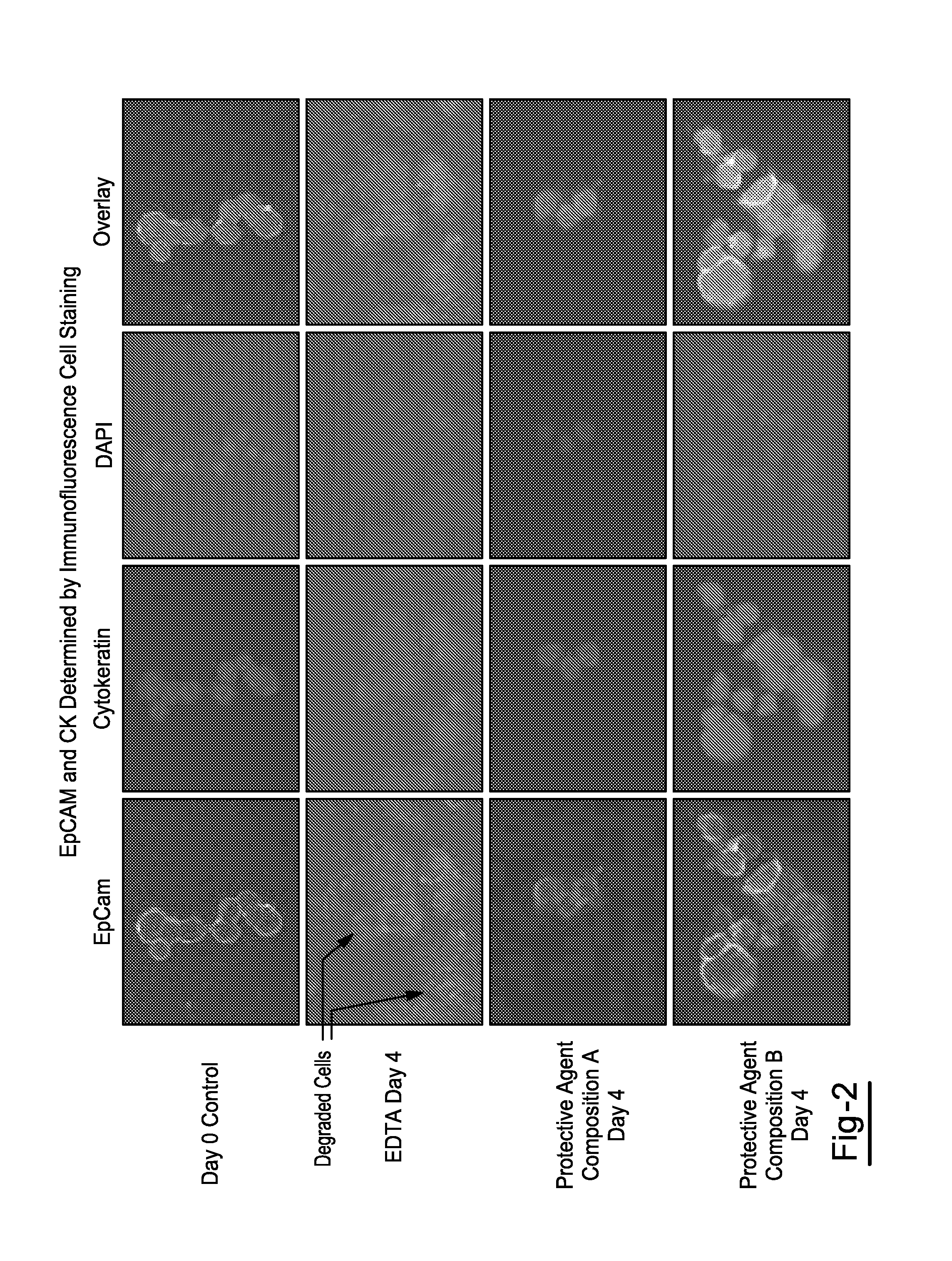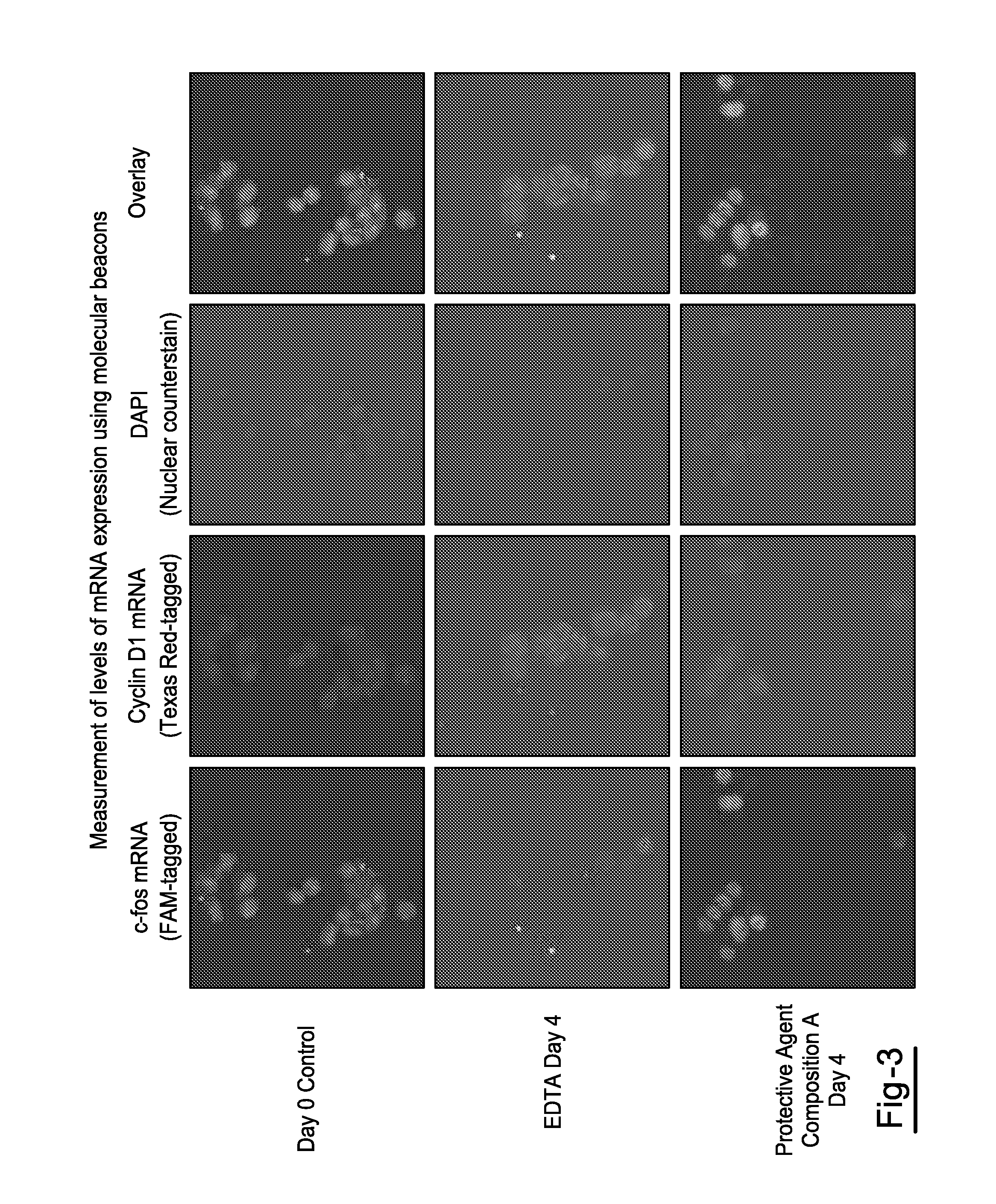Compositions and Methods for Stabilizing Circulating Tumor Cells
a technology compositions, applied in the field of compositions and methods for stabilizing circulating tumor cells, can solve the problems of limiting the utility of circulating tumor cells in cancer diagnosis and prognosis, affecting the accuracy of ctc enumeration and characterization, and fragile circulating tumor cells degrade and other problems
- Summary
- Abstract
- Description
- Claims
- Application Information
AI Technical Summary
Benefits of technology
Problems solved by technology
Method used
Image
Examples
examples
[0025]Blood was drawn from each donor into multiple 10 mL K3EDTA tubes and multiple 10 mL tubes for each of Protective Agent Compositions A & B. All tube types were spiked with MCF-7 breast cancer cells and stored at room temperature, Spiked MCF-7 cells were enumerated using the CellSearch™ system on days 1 and 4. Effect of storage on the stability of proteins and nucleic acids in MCF-7 cells isolated from K3EDTA tube and Protective Agent Compositions A & B was determined using fluorescent staining and confocal laser scanning microscopy.
[0026]Overall, enumeration of MCF-7 cells in K3EDTA blood showed a significant drop in recovered MCF-7 cells at day 1 and 4 compared to values obtained for Protective Agent Compositions A & B. However, in blood drawn into tubes containing Protective Agent Compositions A & B, MCF-7 cell count was stable up to 4 days at room temperature. Epithelial cell adhesion molecule (EpCAM) and cytokeratin (CK) in MCF-7 cells isolated from tubes containing Protect...
PUM
 Login to View More
Login to View More Abstract
Description
Claims
Application Information
 Login to View More
Login to View More - R&D
- Intellectual Property
- Life Sciences
- Materials
- Tech Scout
- Unparalleled Data Quality
- Higher Quality Content
- 60% Fewer Hallucinations
Browse by: Latest US Patents, China's latest patents, Technical Efficacy Thesaurus, Application Domain, Technology Topic, Popular Technical Reports.
© 2025 PatSnap. All rights reserved.Legal|Privacy policy|Modern Slavery Act Transparency Statement|Sitemap|About US| Contact US: help@patsnap.com



